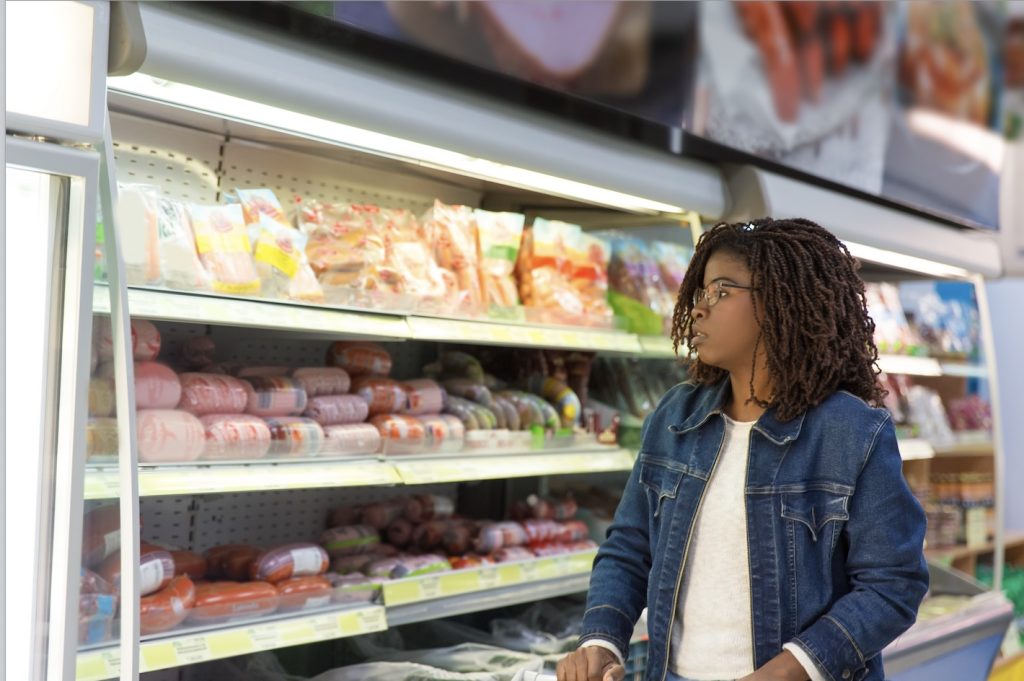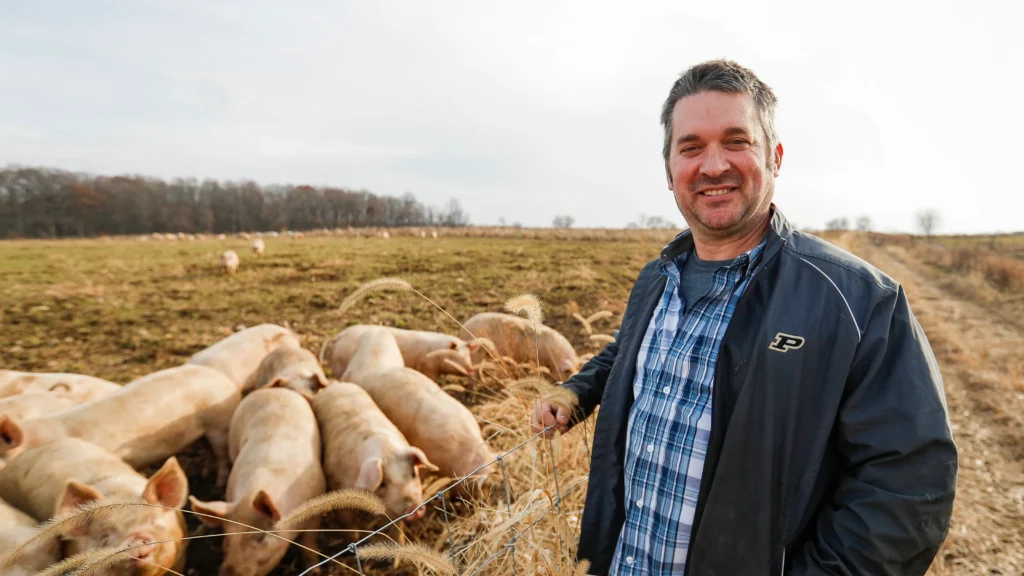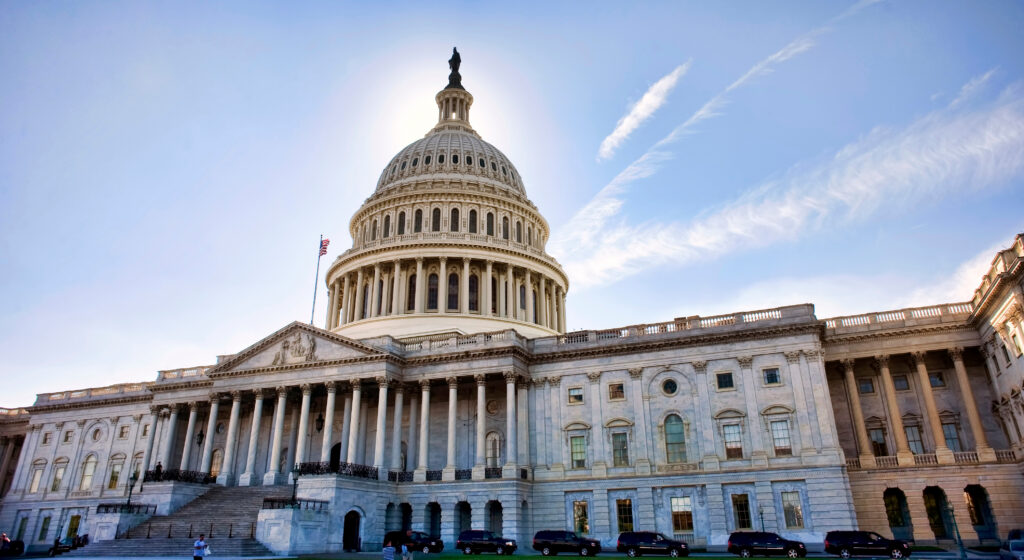Anyone who’s stepped foot in a grocery store in recent years knows the drill: You empty your wallet without filling your cart, and each week you’re paying more for even less.
For years, the largest food companies have been blaming various “supply chain disruptions” for price increases. But when you follow the money, these industry-claimed disruptions have shown to be an excuse for corporations to price gouge and rake in excessive profits.
Pork is the latest industry to hike its prices, with product prices spiking 20% in California — so what’s the excuse this time? The pork industry is blaming California’s Proposition 12 (Prop. 12), which outlawed the sale of pork produced with the use of gestation crates in the state and went into full effect in January 2024. The industry narrative is that pork prices are up in California because of higher production costs to meet Prop. 12’s crate-free requirement, but this is not supported by the data.
Certain corporate-backed politicians are even pushing this false narrative to rally support for industry-backed legislation that would overturn laws like Prop. 12, such as the EATS Act, which would benefit multinational corporations over American farmers and ranchers.
The truth is that while corporations have raised retail pork prices by 20%, the farmers supplying California with crate-free pork are only receiving about 5% more for their hogs. The Prop. 12 excuse doesn’t pass the sniff test, so we’re digging into the facts.
Proposition 12 Impacts on Pork Industry
Passed in 2018 with more than 60% of voters in favor, Prop. 12 created a market opportunity for independent family farmers by setting higher standards for how food sold in California can be produced.
Prop. 12 is critical for America’s independent producers, as it enables them to compete with monopoly meatpacking corporations. Today, just four multinational corporations — Smithfield Foods, Tyson Foods, JBS USA, and Cargill — control 67% of the pork processing market. These multinational corporations are vertically integrated, meaning they control nearly every aspect of the supply chain for pork — including owning the hogs, dictating how they are raised, processing pork, and supplying retail grocers.
This tight control over the pork industry decimated independent farmers’ ability to compete in the market. As a result, the United States lost more than 55% of its hog operations between 1997 and 2022, and many remaining producers had little choice but to contract with these dominant corporations.
Prop. 12 gave hog producers a market in which they could compete in California. Critically, many independent producers — including Niman Ranch’s network of 500 independent hog farmers — never used gestation crates or had already transitioned away from them as the market demanded, so the enactment of this legislation in 2024 would not have increased production costs for these farmers.
While many hog farmers support Prop. 12, industry-backed lobbying groups like the National Pork Producers Council (NPPC) have been leading campaigns against laws like Prop. 12 because they cut into corporate control of the market.
Following the Money: California’s Pork Price Spikes
A recent study connecting pork price increases to Prop. 12 has been making the rounds on Capitol Hill and in the media. The study found that the price of pork products subject to Prop. 12 requirements increased by 20% on average since last summer. Yet data collected from USDA shows that hog farmers raising Prop. 12-compliant pork are only getting about a 5% premium for their hogs.
If the 20% increased cost to the consumer was to cover increased operating and production costs due to Prop. 12 requirements, why are hog farmers only getting 5% more? Where is that additional 15% going?
Another Claimed Supply Chain Disruption
The math for these pork price hikes doesn’t add up, and we’ve seen this act before in highly consolidated sectors across the food system.
The largest corporations have learned they can blame their price hikes on the latest “supply chain disruption,” providing a guise for them to make excessive profits: When egg prices surged in 2022, the largest egg company pointed to the avian flu supply disruption while increasing its gross profit margins five-fold and reporting zero cases of avian flu at its facilities. In 2019, the beef industry used a fire at a Holcomb, KS meatpacking plant as an excuse to jack up retail prices and cut payments to cattle producers. And in 2021 and 2022, fertilizer companies leaned on the narrative of shortages, supply chain disruptions, and increased cost of production to justify price hikes well over 100%.
It appears that dominant pork corporations are misrepresenting Prop. 12 as another “supply chain disruption” to justify price hikes and to ultimately drum up public support for industry-favored legislation like the EATS Act to combat laws like Prop. 12.
Industry Influence
Industry lobbying groups such as NPPC have been fierce opponents of laws like Prop. 12 that would undercut industry giants’ market control, and creating a false narrative that ties Prop. 12 to higher pork prices is a powerful tool for their campaign against this law.
NPPC’s latest effort is centered around the EATS Act and similar legislation that aims to strip state and local governments of their ability to make agricultural policies within their own borders — including policies like Prop. 12 that create market opportunity for independent farmers.
A recent analysis from Missouri Independent shows NPPC has been hard at work lobbying Congress: The industry group spent nearly $3 million lobbying last year alone. Further, Members of Congress who have cosponsored the EATS Act received hundreds of thousands of dollars from meat industry groups over the last two decades, including one representative who received $60,000 from NPPC — the second-highest donation from NPPC during that time.
Pegging Prop. 12 as a “supply chain disruption” is proving to be a huge win for the largest pork corporations, their lobbyists, and complicit Members of Congress — there’s plenty of money to be made off this narrative, and that money is coming straight out of the pockets of consumers and independent hog producers.
Farm Action will continue to expose price gouging across our food system to help put an end to consumers and farmers footing the bill for excessive corporate profits.
Written and edited by: Jessica Cusworth, Joe Maxwell, Angela Huffman, and Christian Lovell




